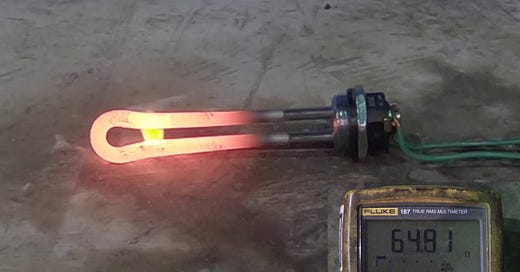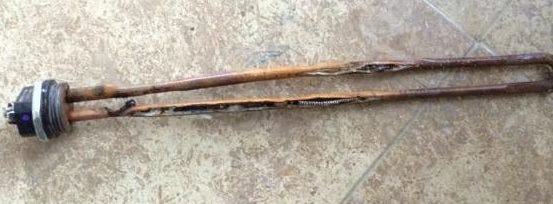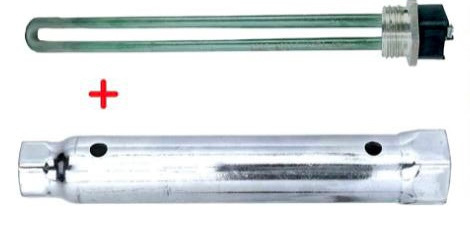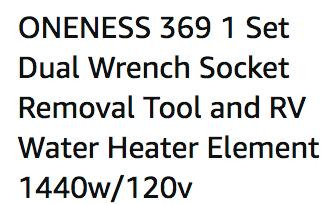Don’t burn up your water heater element
Make sure your water heater tank is filled before turning on the AC power
Dear Readers,
I found this post on another RV group page and thought it was an important reminder….
I went to winterize the trailer (sadness) and decided to get a jump on draining the hot water tank before I even hooked the power. Well, you guessed it. I didn’t follow my normal winterizing routine and simply flip the little on/off switch to off in the hot water tank. The switch was left on in the trailer, which I usually always turn off at the end of any trip. Hooked up power and realized later the switch was on in the trailer. That’s why the electric heating element in my water heater fried.
So I’ve searched for the correct heater element and can’t find the exact part number for my model # SW12DEL water heater. I found this one on Amazon.
Are the heating elements universal? Seems like a good deal. I will certainly need the removal tool. —Rob B.
Dear Rob B. (and readers),
As you just found out, even a few seconds of dry firing an electric water heater can burn out your water heater element. This is not something you normally have to worry about for your bricks-and-sticks house because you don’t normally drain your water heater. So, I’m sure you’re going to remember this lesson come springtime when you get ready for the season.
Checking the details…
To answer your question specifically, there are three basic parameters you need to check for a replacement water heater element. Here is what Amazon lists about this element.
First, is this a 120-volt element? Be aware that the vast majority of water heater elements are built for 240-volt power, and your RV needs a 120-volt element. If you accidentally swap in a 240-volt element, nothing bad will happen. But the wattage will be reduced to 25% of rating. So, instead of 1440 watts of heat it would only provide 360 watts. That’s definitely NOT hot water. So, YES, this element has the correct voltage.
Second, does the wattage match up? While some home water heater elements are rated up up to 3,500 watts (at 240 volts), the typical RV electric water heater element is rated for 1,400 to 1,500 watts. This element is rated for 1,440 watts. So, YES, that seems correct.
Third, will this water heater element physically fit? It appears that your burned element is a single long loop instead of a bent loop like some water heaters use. And the mounting flange thread size should all be the same for a modern water heater. And I like the wrench that will also allow you to pull and replace your anode, so that’s a good thing as well. So, YES, I think this kit looks like a great deal.
Always be sure to turn off the circuit breaker feeding your RV water heater before doing any sort of service, including draining the tank for winterizing it. And double-check this in the spring before you turn on the power to prep for your first trip of the season.
Also, I think it’s probably a good idea to get a backup water heater element and wrench for your RV and carry them with you on the road. Don’t expect to find what you need while you’re out camping, so be sure you carry the essential repair items that you and your family need to be Happy Campers.
OK, everyone. Remember that electricity is a useful and powerful force, so we all need to pay attention to safety precautions while using it.
Let’s play safe out there…. Mike









Hard water deposits will cause the element to fail but over time. Along with other pockets of the U.S.A most of Florida and the South West are notorious for hard water. I carry a portable water softener with me and test the hardness every week. Even using this I still get buildup on my element and a little in the piping that usually shows up at the shower head. At least once a year I use a 50/50 mix of white vinegar and water in my plumbing system via the water pump winterizing hose and then turn the water heater on for several hours. The first time I did that I used a kitchen strainer to see what came out of the water heater and was amazed with all of the calcium flakes.
If you install a pressure switch in series with the 110 switch, you should be able to reduce (eliminate?) Chances of buring out the heating element.